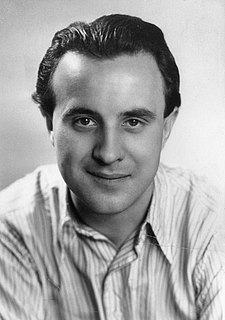A Quote by Wolfgang Borchert
A man dies ... only a few circles in the water prove that he was ever there. And even they quickly disappear. And when they're gone, he's forgotten, without a trace, as if he'd never even existed. And that's all.
Related Quotes
You have to understand that it's a very cooperative world, not only with the environment, with but our fellow human beings. If you do not cooperate, if you do not work together to keep the entire organism going, the whole thing dies, and everybody dies with it. That's a law of nature, and it's existed forever. We're one of the very few creatures that has a choice, and can intellectualize the process.
The only way that we can prove the relevance of Fanon in a certain way outside of some academic circles is to ask, do people involved in social struggles engage with Fanonian concepts and find something relevant for them, even if they have never heard of Fanon because Fanon is implicitly in the struggles?
The Forgotten Man... works, he votes, generally he prays-but he always pays-yes, above all, he pays. He does not want an office; his name never gets into the newspaper except when he gets married or dies. He keeps production going on.... He does not frequent the grocery or talk politics at the tavern. Consequently, he is forgotten.... All the burdens fall on him, or on her, for it is time to remember that the Forgotten Man is not seldom a woman.
Life cannot be cut off quickly. One cannot be dead until the things he changed are dead. His effect is the only evidence of his life. While there remains even a plaintive memory, a person cannot be cut off, dead. And he thought, “It’s a long slow process for a human to die. We kill a cow, and it is dead as soon as the meat is eaten, but a man’s life dies as a commotion in a still pool dies, in little waves, spreading and growing back toward stillness.



































